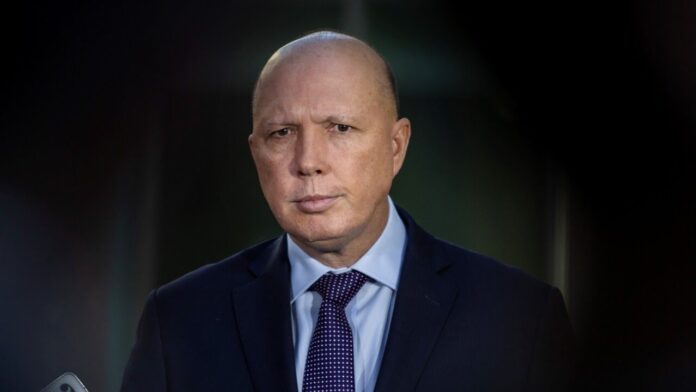Opposition Leader Peter Dutton’s nuclear energy strategy faces criticism for its high costs and feasibility issues, igniting a political and environmental firestorm
On June 19, 2024, Australian Opposition Leader Peter Dutton revealed the Coalition’s nuclear energy strategy during a press conference at the Commonwealth Parliamentary Offices in Sydney. The plan proposes constructing seven nuclear power plants, marking a significant shift in Australia’s energy policy.
The announcement quickly generated controversy due to its lack of detailed cost analysis and the absence of an existing nuclear workforce in the country. Critics, including Queensland’s Premier and Opposition Leader, immediately opposed the plan. They argue that it is impractical and politically motivated rather than a genuine energy solution.
Dutton’s strategy aims to position nuclear energy as a viable alternative to renewables, despite nuclear power being significantly more expensive to develop. The plan is perceived by many as a deliberate attempt to create political chaos and distract from the ongoing support for the fossil fuel industry, which continues to receive substantial government subsidies.
Analysis:
Political Perspective: Dutton’s nuclear energy proposal is primarily viewed as a political manoeuvre. By introducing a contentious topic like nuclear energy, the Coalition aims to divert attention from its support for the fossil fuel industry and create a divide between major parties on energy policy. The plan’s lack of detailed cost analysis and feasibility further suggests that it is more about stirring political debate than providing a concrete energy solution.
Social Perspective: The announcement has raised public concerns about the safety and feasibility of nuclear energy in Australia. With no existing nuclear infrastructure or workforce, the plan’s practicality is questioned. This debate underscores broader societal anxieties about adopting nuclear power, with potential environmental and health risks at the forefront of public discourse.
Racial Perspective: Although the plan does not directly address racial issues, energy policies often disproportionately affect marginalized communities. The construction of nuclear plants could impact indigenous lands and communities, highlighting the need for inclusive consultations and considerations to avoid exacerbating historical injustices.
Gender Perspective: The nuclear energy debate intersects with gender issues, particularly regarding the potential impacts on women in rural and indigenous communities. Women often face unique challenges related to environmental and health risks from large-scale energy projects. Ensuring that women’s voices are included in the decision-making process is crucial for addressing gender-specific concerns and achieving equitable outcomes.
Economic Perspective: Economically, Dutton’s nuclear energy proposal faces criticism for its high costs compared to more affordable and readily available renewable energy sources. The plan’s lack of a detailed cost analysis leads to skepticism about its financial viability. Australia’s continued subsidies to the fossil fuel industry, amounting to $14.5 billion in 2023-24, highlight a significant misalignment in energy investment priorities. Redirecting these funds towards renewable energy and environmental initiatives could provide more sustainable and economically beneficial outcomes.
Overall, Dutton’s nuclear energy strategy has ignited a multifaceted debate across political, social, racial, gender, and economic dimensions. As the discussion unfolds, the focus remains on finding viable and sustainable energy solutions for Australia’s future
